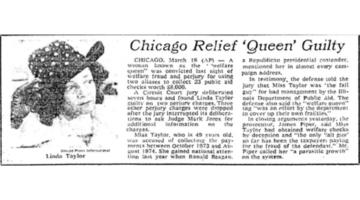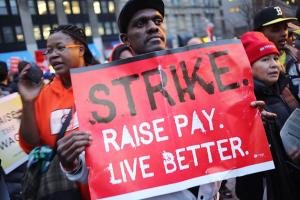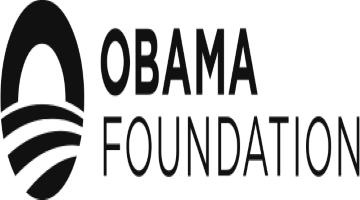The necessary political demand is not that we make better, more humane prisons and jails, but that we abolish prisons and jails altogether.
“The neoliberal order that reigned from Reagan through Obama is rapidly coming unglued.”
In this series, we ask acclaimed authors to answer five questions about their book. This week’s featured authors are Joshua Dubler and Vincent Lloyd. Dubler is Associate Professor of Religion at the University of Rochester. Lloyd is Associate Professor of Theology and Religious Studies at Villanova University. Their book is Break Every Yoke: Religion, Justice, and the Abolition of Prisons.
Roberto Sirvent: How can your book help BAR readers understand the current political and social climate?
Joshua Dubler and Vincent Lloyd: Our political moment is one of great risk and of great possibility. The neoliberal order that reigned from Reagan through Obama is rapidly coming unglued. With kleptocracy married to white nationalism and the emergent climate change crisis, chances are that what comes next will make Reaganism look good by comparison. More and more kinds of people are likely to be rendered expendable, disposable. As Obama’s ineffectiveness as a president and the failure of the Clinton wing of the Democratic Party to hold power in 2016 demonstrated, multicultural, corporate-feminist neoliberalism, which has never been an effective means for achieving justice, is no longer even an effective means for holding power.
At the same time, we are heartened by the increasing visibility in mainstream public life of real leftism, real socialism, a new social order that will reject categorically that any human being should be disposable. Given that the Clintonian hedge is now plainly a recipe for defeat, progressives are coming to realize that we might as well fight for those things we believe to be just and to eradicate those things we regard as unjust. Locking human beings in cages is an abomination. Human beings—even those who are responsible for grave harms—deserve more than that. Let’s make that principle foundational to our politics.
What do you hope activists and community organizers will take away from reading your book?
We want liberals who have been turned on by The New Jim Crow and 13th to understand that if we are to take those arguments at all seriously, the necessary political demand is not that we make better, more humane prisons and jails, but that we abolish prisons and jails altogether. We take this position to be both just and pragmatic. Even if all you are hoping for is to “end mass incarceration” and to get back to early 1970s incarceration rates, the movement capable of doing that has to speak unwaveringly in absolutist moral terms. Not because religion is somehow essentially good but because of the power of religious languages, stories, and rituals—especially in this weirdly religious country—religious traditions have tremendous resources to contribute to this struggle.
We know readers will learn a lot from your book, but what do you hope readers will un-learn? In other words, is there a particular ideology you’re hoping to dismantle?
We need to collectively decarcerate our notion of justice. During the ascendancy of mass incarceration, the justice that Martin Luther King spoke about, a mighty, divine force, was eclipsed by a much more pitiful notion. For most Americans today, even those who fight for racial justice or gender justice, the operating horizon for effecting justice is the taking of the bad man and locking him in a cage. This, we are told, is not simply vengeance; it is also the essence of both accountability for the offending party and healing for harmed party.
As those who talk and practice transformative justice show, however, locking up bad men has little to do with healing and, more often than not, re-traumatizes those who have been harmed. Justice needs to become, again, something much grander than the meager “justice” afforded by the criminal justice system. At its best, justice means responding to the inevitable tears in our communities by creatively re-weaving the social fabric, making possible new and deeper forms of relation. We must attend to the material reality of harms – physical, economic, psychic – but we must also take instances of harm as occasions to imagine radically new ways of living together.
Who are the intellectual heroes that inspire your work?
Friedrich Nietzsche, Hannah Arendt, Angela Davis, George Jackson, Assata Shakur. We must refuse the world as we’re told it can only be. But the value of critique is realized through the exercise of moral judgment that refuses domination, and through experiments in collectivity that begin to shape a new world. Many of the abolitionist practitioners on the ground who we met in writing this book are our new intellectual heroes: people like Mariame Kaba, Ghani Songster, Jason Lydon, David Brazil, and Lynice Pinkard, and many others. We also owe a lot, too, to our incarcerated friends, from whom we have learned a great deal.
In what way does your book help us imagine new worlds?
The will to eradicate the evil of the world and bring a new world into existence: this is the abolition spirit. While the German philosopher G.W.F. Hegel lauds the world spirit, the progressive unfolding of civilization that reaches its greatest heights in modern Europe, the abolition spirit is present everywhere, at all times. The abolition spirit is ubiquitous, but it usually lurks in the shadows, and in shadowed cages. It entails an unequivocal no to dehumanization effected by unfettered capitalism, patriarchy, xenophobia, racism, slavery, and the prison. Equally, it entails affirmative practice, experimentations in living otherwise, in ways that build new forms of community, new forms of relationship, new worlds.
Everywhere we look, there are systems of domination that dehumanize. And everywhere we look, if we look closely enough, if we refuse mystifications that distort our perception, we see the abolition spirit. In the nineteenth century, we see the formerly enslaved organize for the end of slavery and for a new way of living together for people of all races. On the Edmund Pettus Bridge, at Stonewall, in Soweto, in Occupy Wall Street, and myriad other places whose names we don’t remember, the abolition spirit has made itself visible, calling all who witnessed it to imagine the world anew.
With more than two million mainly poor folks, mainly Black and brown folks incarcerated in the US today, Break Every Yoke aims to summon the abolition spirit. We tell stories from the margins, from grassroots groups conjuring a new world. Unlike the world spirit, the abolition spirit is not always triumphant. It gathers and sputters, mutates and recedes. Once in a very long while, it radically reshapes the world. We write to keep faith with the abolition spirit.
Roberto Sirvent is Professor of Political and Social Ethics at Hope International University in Fullerton, CA, and an Affiliate Scholar at Yale University’s Interdisciplinary Center for Bioethics, where he directs the Race, Bioethics, and Public Health Project. He is co-author, with fellow BAR contributor Danny Haiphong, of the book, American Exceptionalism and American Innocence: A People’s History of Fake News—From the Revolutionary War to the War on Terror.
COMMENTS?
Please join the conversation on Black Agenda Report's Facebook page at http://facebook.com/blackagendareport
Or, you can comment by emailing us at comments@blackagendareport.com



















